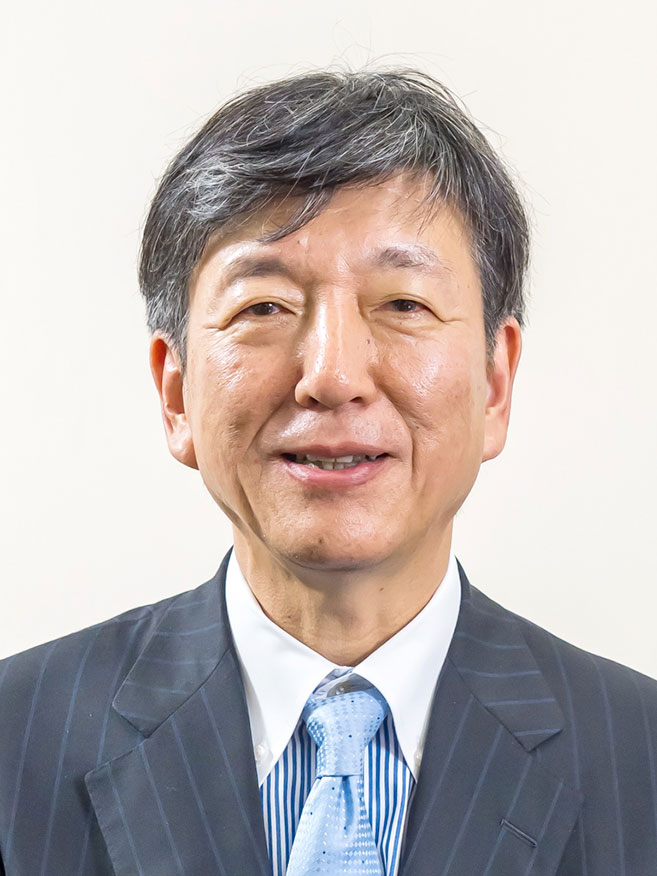
My name is Akira Yamaguchi and I was appointed President of the Nuclear Waste Management Organization of Japan (NUMO). I would like to extend my greetings upon my inauguration.
First of all, I would like to express our deepest gratitude to Suttu town and Kamoenai village in Hokkaido and Genkai town in Saga prefecture, who have accepted literature survey based on their great concern for contributing to the benefit of society.
With effect from July, I have a firm sense of responsibility for this important duty, considering NUMO's mission to smoothly and steadily progress the final disposal project.
The use of nuclear energy results in the generation of spent fuel, and to date there are approximately 19,000 tons of spent fuel in existence. In addition, the Strategic Energy Plan stipulates the sustainable use of nuclear energy.
As a responsibility of our generation, we must ensure that measures are taken to deal with the spent fuel that will also be generated in the future and, as the end point, it is essential to realize our final disposal project. Sustainable utilization of nuclear energy is possible by establishing the nuclear fuel cycle, which is the basic nuclear policy in Japan, and completing the scheme of use of nuclear energy. Emphasized in the "Future Direction and Action Guidelines of Nuclear Energy Policy" produced by the Ministerial Meeting on Nuclear Energy in April 2023. Here, "Acceleration of reprocessing, decommissioning and final disposal processes" is positioned as one of the important measures. Also, at the 211th session of the Diet in 2023, the Atomic Energy Basic Law, which sets the principles and basic policies for utilization of nuclear energy, was amended. Now, Article 2-3 of the Law clearly stipulates basic measures for final disposal.
That Article states requirements as follows:
- Promoting public understanding of final disposal,
- Proactive approach to local governments and other relevant parties for the planned implementation of final disposal,
- Providing support for local governments and other related parties, especially in areas of literature survey and preliminary investigation and also areas that show understanding and interest, facilitated by cooperation of relevant ministries and agencies,
- International cooperation to promote research and development on final disposal,
- Necessary measures for smooth and steady implementation of final disposal, including strengthening of cooperation between NUMO and nuclear operators.
In order for the public to understand the final disposal project, to implement final disposal in a planned way, and to expand regions that will accept literature survey, we must strengthen cooperation with the government and nuclear operators and strive to provide information to local communities and implement community-based activities. Coexistence with the local community is essential for smooth and steady project implementation.
In addition, what we must keep in mind in the final disposal project is to ensure safety, and to work to gain public understanding of that safety. The foundation for ensuring safety is to possess reliable technical capabilities and evidence. Technical capabilities are valuable only when they are presented in a tangible form, so rigorously evaluating the safety of the final disposal facility and clearly identifying relevant uncertainty, and disseminating these results is also an important part of our project.
Just like Japan, many countries worldwide are engaged in final disposal projects. Deepening international cooperation with these countries is an effective approach to improve the quality and accountability of technological knowledge bases and associated safety assessments. Also, there are examples from other countries that suggest good communication with the local community and public trust in the expertise have contributed greatly to the site selection process. We believe that sharing experiences and lessons learned from these good practices is also a significant part of international cooperation.
I will strive to steer our organization with a firm commitment to these basic measures. Finally, I would like to express my deepest gratitude again to Suttu town and Kamoenai village in Hokkaido and Genkai town in Saga prefecture for accepting literature survey, and I sincerely hope that several more municipalities will also come forward in the future.
July, 2024
President of the Nuclear Waste Management Organization of Japan (NUMO)
Akira Yamaguchi



